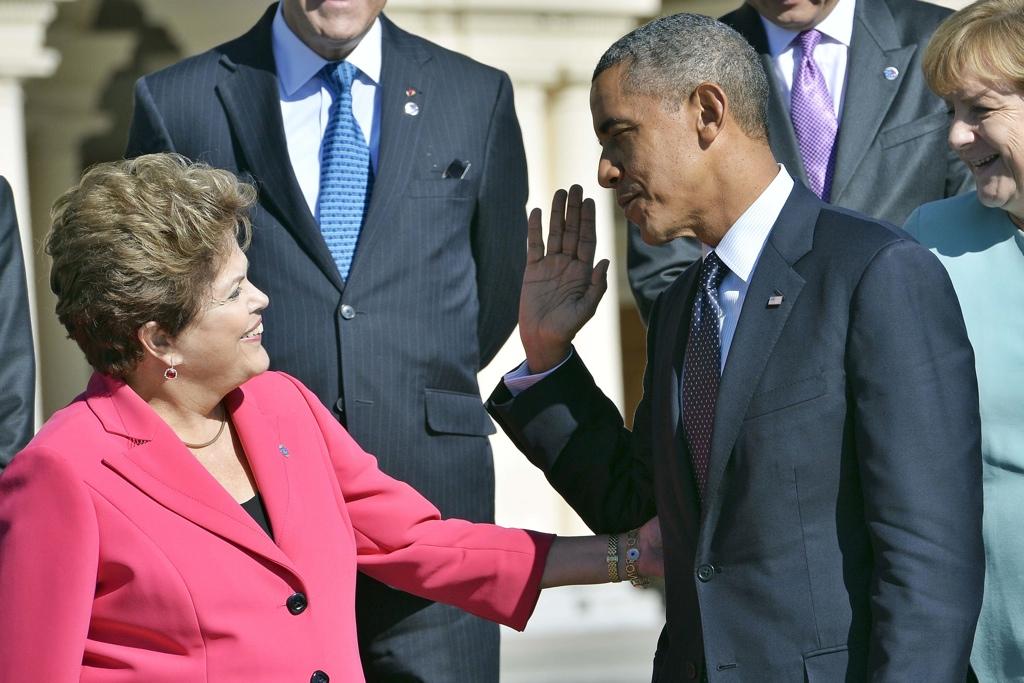Citing NSA fears, Brazil prepares for digital divorce from US-dominated internet
Brazilian President Dilma Rousseff and Barack Obama at the G20 summit in Russia on Sept. 6. When will they meet next?
Brazil is preparing to digitally divorce from the United States as fears of the National Security Agency’s international spying efforts place new strains on relations between two of the Western Hemisphere’s dominant economies.
Shortly before Brazilian President Dilma Rousseff called off an official visit to Washington this week, she announced plans to establish an online space for Brazil where the country will be afforded a greater level of cyber sovereignty.
The announcement followed revelations of NSA attempts to spy on Rousseff and other Brazilian officials, which widened the diplomatic rift between Brazil and the administration of President Barack Obama.
In July, The Guardian's Glenn Greenwald reported that Brazil is second only to the United States when it comes to the amount of communications subject to NSA surveillance.
More from GlobalPost: Brazil-US: What's at stake?
Brazil will now take several unprecedented steps to break away from the American-run internet, Gizmodo reported. They include forcing internet companies like Google and Facebook to build servers inside Brazil's borders so that they're subject to Brazilian privacy laws; building more internet exchange points to route Brazilian traffic around potential spyware; launching a state-run email service to act as an alternative to Gmail, Yahoo! Mail and others; and laying a new underwater cable to Europe so that Brazil can connect with countries there directly.
Rousseff believes that a new online space would help shield Brazilians from further US prying into their activities. She is considering urging other countries to take similar measures when she speaks at the United Nations General Assembly later this month, a senior Brazilian official told Reuters.
"If you want to work here, you will have to obey our rules,” the official said, speaking on the condition of anonymity. "This would be a turning point for these companies," the official added, naming Facebook, Google and Microsoft as examples.
Experts are wary of Brazil’s new initiatives, however. Some are even calling the measures a bit, well, Orwellian.
More from GlobalPost: OpNSA: Anonymous targets US lawmakers with close ties to intelligence community (VIDEO)
“It’s sort of like a Soviet socialism of computing,” Johns Hopkins computer security expert Matthew Green told the Washington Post, adding that the US “free-for-all model" is better for both privacy and innovation.
But the senior Brazilian official who spoke to Reuters said a data storage bill would work, and could make Brazil a model for other members of the BRICS bloc of large emerging markets: China, India, Russia and South Africa.
"Once we do it, it will become a standard," the official said.
But if Brazil’s independent internet looks anything like China’s Great Firewall, Brazilian citizens may find themselves severely limited online.
